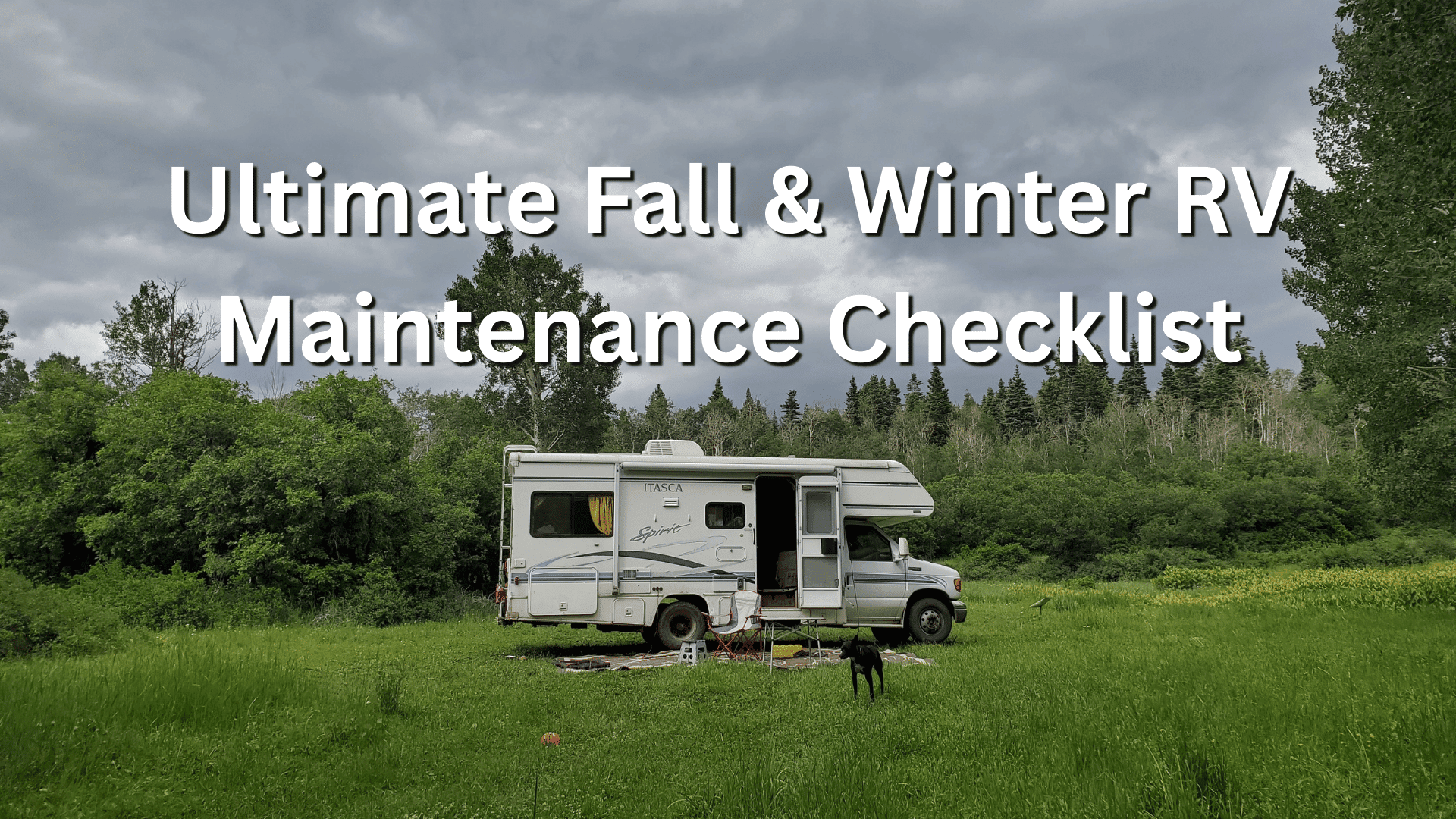Posted by
on
As the crisp air of fall rolls in and the first hints of frost appear, full-time RVers know it’s time to get our rigs ready for the colder months. Whether you’re chasing snow-covered landscapes in Canada, taking a scenic fall foliage tour through New England, or spending the winter in the southwest (even Quartzsite, AZ can dip below freezing at night!), proper maintenance is the key to staying safe, warm, and stress-free.
Here’s your ultimate fall/winter RV maintenance checklist to keep your travels running smoothly and your home-on-wheels cozy and safe all season long.

Cold temperatures, ice, and road salt can be tough on your RV’s exterior.
Checklist:
Freezing temperatures can cause costly damage to pipes and tanks if not properly winterized.
Checklist:
Nothing’s worse than realizing your furnace is out when it’s 20°F outside.
Checklist:
Cold weather drains battery capacity faster, so it’s important to be prepared.
Checklist:
Consider battery powered heated apparel for extreme cold conditions.
Snow and ice require reliable traction and braking.
Checklist:
Winter travel means unpredictable weather—be ready for anything.
Checklist:
Moisture buildup can be a problem in cooler months.
Checklist:
Your RV can handle winter, but your route should too.
Checklist:
Know where to find propane refills along your route. Pro tip: use an app like iOverlander or AllStays to find camping and services.
Traveling in Canada during the colder months can be breathtaking, but it also comes with unique challenges. Here’s how to stay safe and comfortable in the Great White North:
Full-time RV life in fall and winter can be magical! Most of the seasonal travelers are home and you can enjoy cozy evenings by the fire and waking up to snowy mountain views in total solitude! But comfort and safety come from preparation. Use this checklist before you hit the road, and you’ll spend more time enjoying your adventures and less time worrying about repairs.
Pro Tip: Keep a printed version of this checklist in your RV’s maintenance binder so you can reference it each year without starting from scratch.
For more winter RV Life tips check out these videos:
3 Must-Haves for Winter RV Living
My Best Tips and Tricks for Thriving in your RV all Winter Long
Surviving in FREEZING Temps Off Grid in an RV
Easy and Cheap RV Winterizing on the Go (see below)
Other Helpful Resources from Carolyn’s RV Life:
DISCLAIMER: Carolyn’s RV Life is viewer and reader supported. When you buy through the links on my site, I may earn a commission – at no additional cost to you. Thank you in advance for your support!
Carolyn’s RV Life and Carolyn Higgins share her experiences, thoughts, opinions and ideas in this blog post and on this website for entertainment purposes only. It is not intended to be a substitute for professional advice, instruction or guidance. Viewers/Readers should consult with professionals before pursing any actions or behaviors exhibited in this video. Carolyn’s RV Life or Carolyn Higgins cannot be held liable in the event of any accident or injury that may occur as a result of application of procedures and information provided in this video.
Join the Fun! Subscribe to Carolyn’s RV Life email list and get stories, pictures, videos, advice, tips, and more!
Want to receive sneak peaks, insider news and exclusive content? Join the Carolyn’s RV Life Patreon Community!
2 Responses
Thank you for your efforts in writing this blog. I’ve been traveling in an RV since 1957 and I’m still learning. You knocked this blog out of the ballpark park.
Thank you! Happy and safe travels!